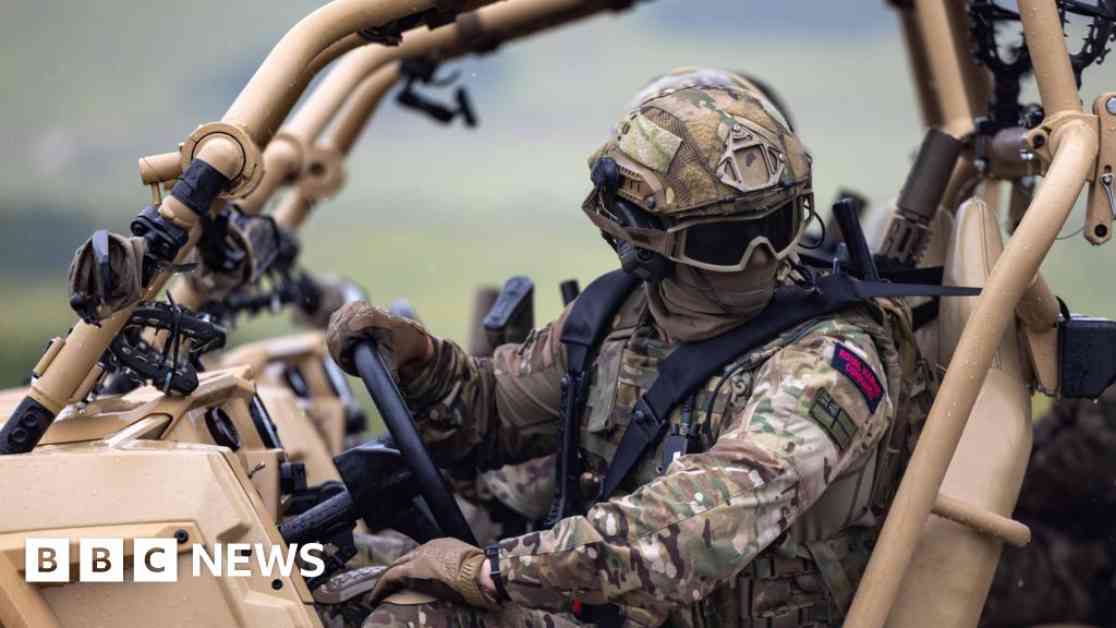Former UK Army Chief Highlights Military Shortcomings for Ukraine Peacekeeping Mission
In a recent BBC interview, Lord Dannatt, the former head of the UK Army, expressed concerns about the UK military’s ability to lead a potential peacekeeping mission in Ukraine. According to Lord Dannatt, the UK military is “so run down” that it would not be able to provide the necessary number of troops for such an operation. He estimated that up to 40,000 UK troops would be needed for a mission in Ukraine, a number the UK currently does not have available.
This statement comes in the wake of calls from Sir Keir Starmer, who emphasized the UK’s commitment to ensuring Ukraine’s security. The possibility of sending British troops as peacekeepers was raised after a conversation between US President Donald Trump and Russian President Vladimir Putin about negotiating an end to the conflict in Ukraine. Lord Dannatt, who led the Army from 2006 to 2009, suggested that a peacekeeping force of about 100,000 troops would be necessary, with the UK expected to contribute a significant portion of that number.
Challenges in Military Preparedness
Lord Dannatt’s comments shed light on the challenges facing the UK military in terms of numerical strength, capability, and equipment readiness. He highlighted the potential embarrassment of deploying troops with insufficient resources, emphasizing the need for a robust and well-prepared force for peacekeeping operations. The UK’s military has faced recruitment challenges in recent years, with missed targets on new recruits below the rank of officer since 2010-11. Lord Dannatt urged the government to prioritize defense and national security, stressing the importance of adequate funding and resources for the armed forces.
According to Ministry of Defence (MoD) figures, as of October 2024, the UK had 74,612 regular Army forces, excluding Gurkhas and volunteers. However, the UK has struggled to meet recruitment targets, pointing to ongoing concerns about the military’s strength and readiness. Lord Dannatt’s call for increased defense spending beyond the government’s current commitment to 2.5% of GDP reflects a broader need for sustained investment in the UK’s armed forces.
International Cooperation and Commitment
The discussion around potential peacekeeping efforts in Ukraine underscores the importance of international cooperation and commitment to regional security. Calls for European countries, including the UK and France, to lead a peacekeeping coalition highlight the need for collective action in addressing conflicts like the one in Ukraine. Former Nato secretary-general Anders Fogh Rasmussen emphasized the role of European nations in contributing troops to a peacekeeping mission, emphasizing the need for a significant military presence to support long-term stability in the region.
The UK’s ongoing support for Ukraine, including financial aid, training for Ukrainian troops, and military equipment, reflects a commitment to standing by its allies in times of crisis. The recent announcement of a £150m “firepower package” to bolster Ukraine’s defense capabilities demonstrates the UK’s efforts to enhance the country’s ability to defend itself against external threats. As discussions continue about the potential for peace talks and a resolution to the conflict, the UK remains committed to supporting Ukraine’s security and stability.
In response to concerns raised about the UK military’s readiness for peacekeeping missions, an MoD spokesperson highlighted the professionalism and excellence of Britain’s armed forces. While acknowledging the challenges posed by resource limitations, the spokesperson emphasized the UK’s ongoing support for Ukraine and its efforts to assist Ukrainian forces in their fight for security and peace. As discussions evolve around the role of international partners in resolving the conflict in Ukraine, the UK’s commitment to supporting its allies remains steadfast.
By shining a light on the complexities of military preparedness, international cooperation, and the challenges of peacekeeping operations, the voices of leaders like Lord Dannatt underscore the importance of strategic planning, resource allocation, and collective action in addressing global security challenges. As the world navigates ongoing conflicts and strives for peace, the insights shared by experts and policymakers serve as a reminder of the need for vigilance, unity, and unwavering support for those affected by conflict.













